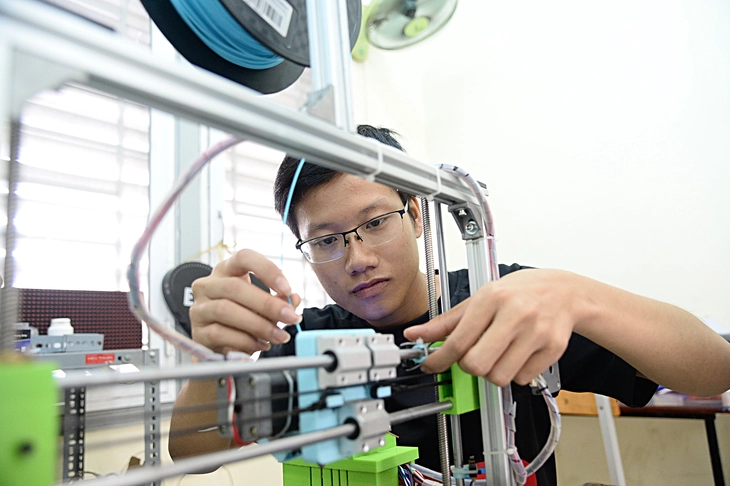
Students of a university in Ho Chi Minh City during a research class at school - Photo: TU TRUNG
Professor Nguyen Minh Tho said: "Major domestic research projects cannot find good doctoral students because we lack high-quality local human resources, the core factor to implement high-tech industry."
* According to the professor's observation, what is the cause of this situation?
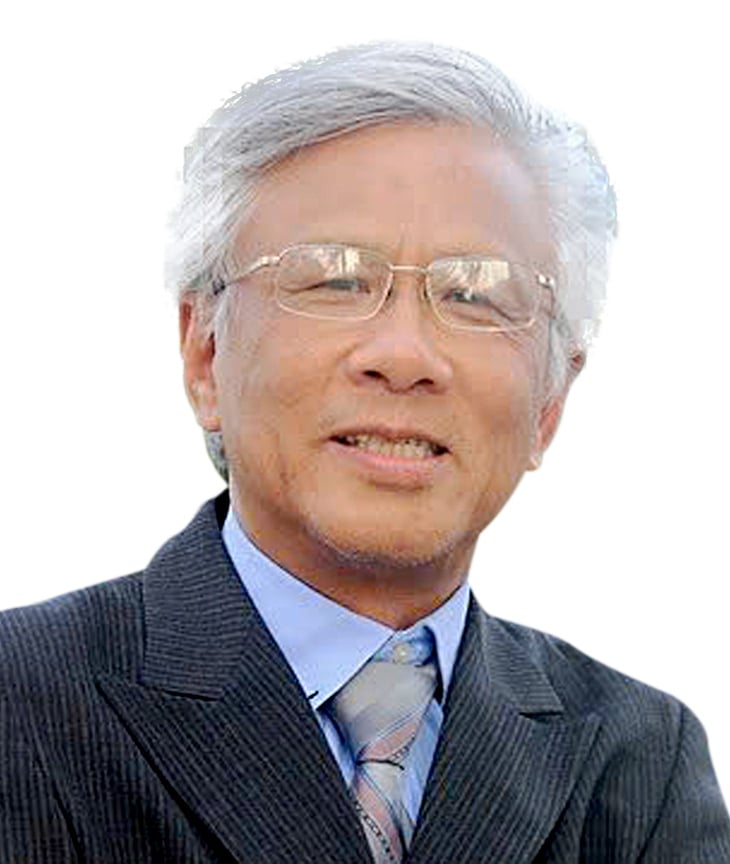
Professor Nguyen Minh Tho
- The best students from specialized high schools in all regions are constantly sought after by universities in Korea, Taiwan and Europe.
Meanwhile, to do a PhD in the country, students have to pay their own tuition, from 45 to 70 million VND per year, and buy their own chemicals and equipment, while the labs do not have enough machines.
Moreover, they have to work extra to make a living and cannot devote themselves to research like in developed countries.
Universities mainly stop at teaching words, but have not yet formed a tradition of debate, criticism, respect for truth and the desire to seek truth.
The value of academic degrees is also eroded by academic fraud, degree trading and the practice of “doctoral fellowships”. This makes the doctoral degree lose its inherent meaning.
* How to change that situation, professor?
- The government should provide doctoral scholarships and reduce or exempt tuition fees. Laboratories should have basic equipment.
At the same time, it is necessary to abolish part-time graduate programs and make drastic changes to improve the quality of university training to create a sustainable foundation. It is time to implement a 5-year program for bachelor's and master's degrees like in Europe.
* You repeatedly emphasized "academic space". What exactly is that?
- It is a place where scientists can meet, exchange ideas and inspire creativity. That is how Berkeley University in the US creates a "high research atmosphere" with dozens of Nobel laureates working together in one department.
The academic space is also a place for research traditions, approaches to problems, where scientists meet, exchange ideas, and let new ideas "spark" even in conversations over coffee or lunch. Just a few words, a few suggestions for direction, like "you try this", can help solve the problem.
Vietnam needs to build specialized research centers similar to Professor Ngo Bao Chau's Institute of Advanced Mathematics, where knowledge is shared, debated, and academic communities are formed.
* Can international cooperation help solve the problem?
- Yes, but there must be a cooperation strategy. We should encourage students to do short-term internships abroad to learn research methods, live in a high-level academic environment, but the final product, that is, the doctoral research theses, must be completed in Vietnam. This helps to form a "local" workforce, which is a force that can turn knowledge into technological products.
* What lessons from Asian countries can Vietnam learn from in retaining talent?
- Japan, Taiwan, South Korea and China all built a strong enough domestic education and research foundation before calling on talented people to return. It is this combined team that directly created chips, robots and electric cars - achievements that changed the status of the country. Vietnam must also follow that path if it wants to realize its high-tech industrial aspirations.
Vietnam’s most important source of brainpower must be the talented, courageous and highly qualified workforce working right in the country. They are the force capable of directly “rolling up their sleeves” to create new, competitive and unique technological products right in their homeland.
Retaining talent in Vietnam
A notable direction from the private sector is the VinUniversity Pathways to PhD program (VinUni-3P). Unlike scholarships for studying abroad, VinUni-3P focuses on retaining talent in Vietnam, with financial support of 10-30 million VND per month and research opportunities with international experts.
The program implements pioneering projects on next-generation batteries, CO2-capturing materials, AI sensors, anti-cancer drugs...
VinUni-3P shows that private enterprises can play a strategic role in creating a generation of scientists, from good to excellent, "on-site" - the force that Vietnam is in dire need of to enter the high-tech industrial era.
Source: https://tuoitre.vn/muon-co-cong-nghe-cao-phai-co-tien-si-o-lai-viet-nam-20251017094121151.htm



![[Photo] Immerse yourself in the colorful musical world of “Secret Garden Live in Vietnam”](https://vphoto.vietnam.vn/thumb/1200x675/vietnam/resource/IMAGE/2025/10/18/1760805978427_ndo_br_thiet-ke-chua-co-ten-41-png.webp)
![[Photo] Collecting waste, sowing green seeds](https://vphoto.vietnam.vn/thumb/1200x675/vietnam/resource/IMAGE/2025/10/18/1760786475497_ndo_br_1-jpg.webp)
![[Photo] Closing ceremony of the 18th Congress of Hanoi Party Committee](https://vphoto.vietnam.vn/thumb/1200x675/vietnam/resource/IMAGE/2025/10/17/1760704850107_ndo_br_1-jpg.webp)
![[Photo] General Secretary To Lam attends the 95th Anniversary of the Party Central Office's Traditional Day](https://vphoto.vietnam.vn/thumb/1200x675/vietnam/resource/IMAGE/2025/10/18/1760784671836_a1-bnd-4476-1940-jpg.webp)
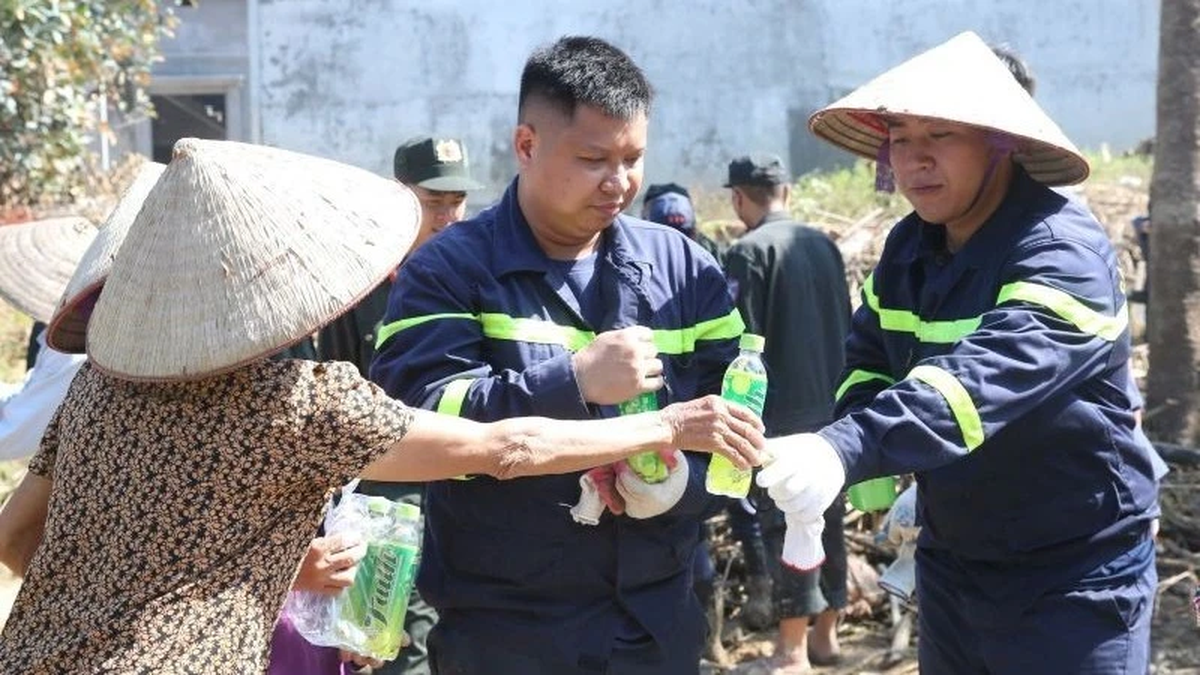
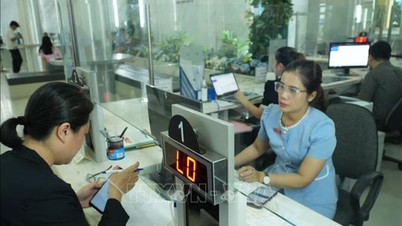

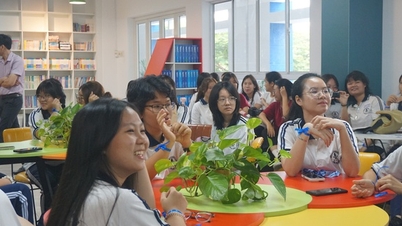

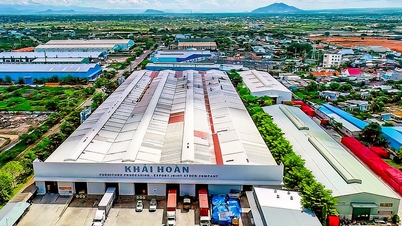





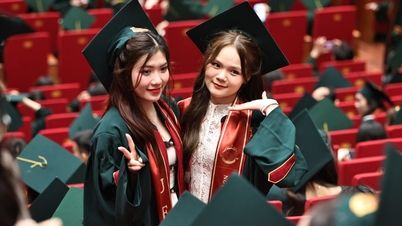

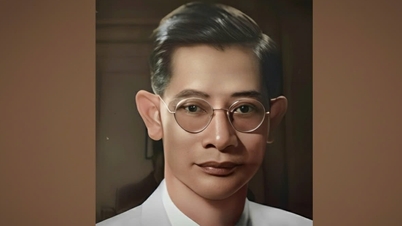

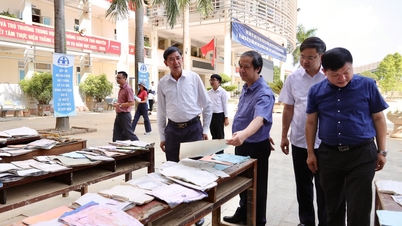
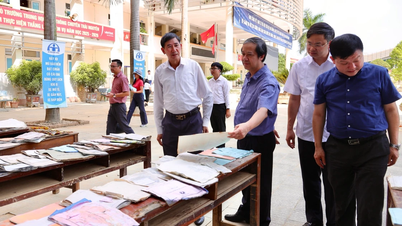











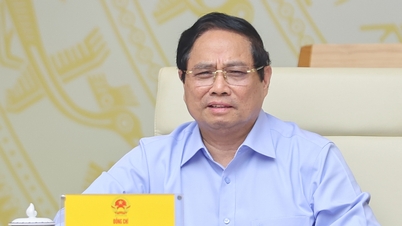





























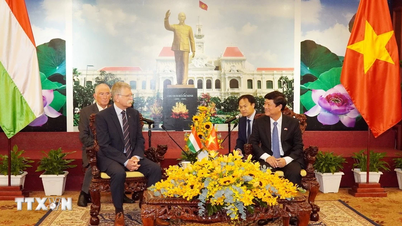






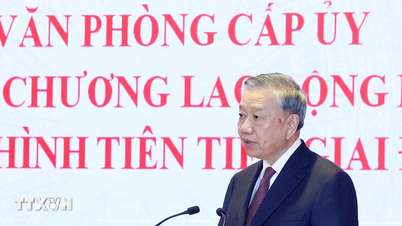





























Comment (0)